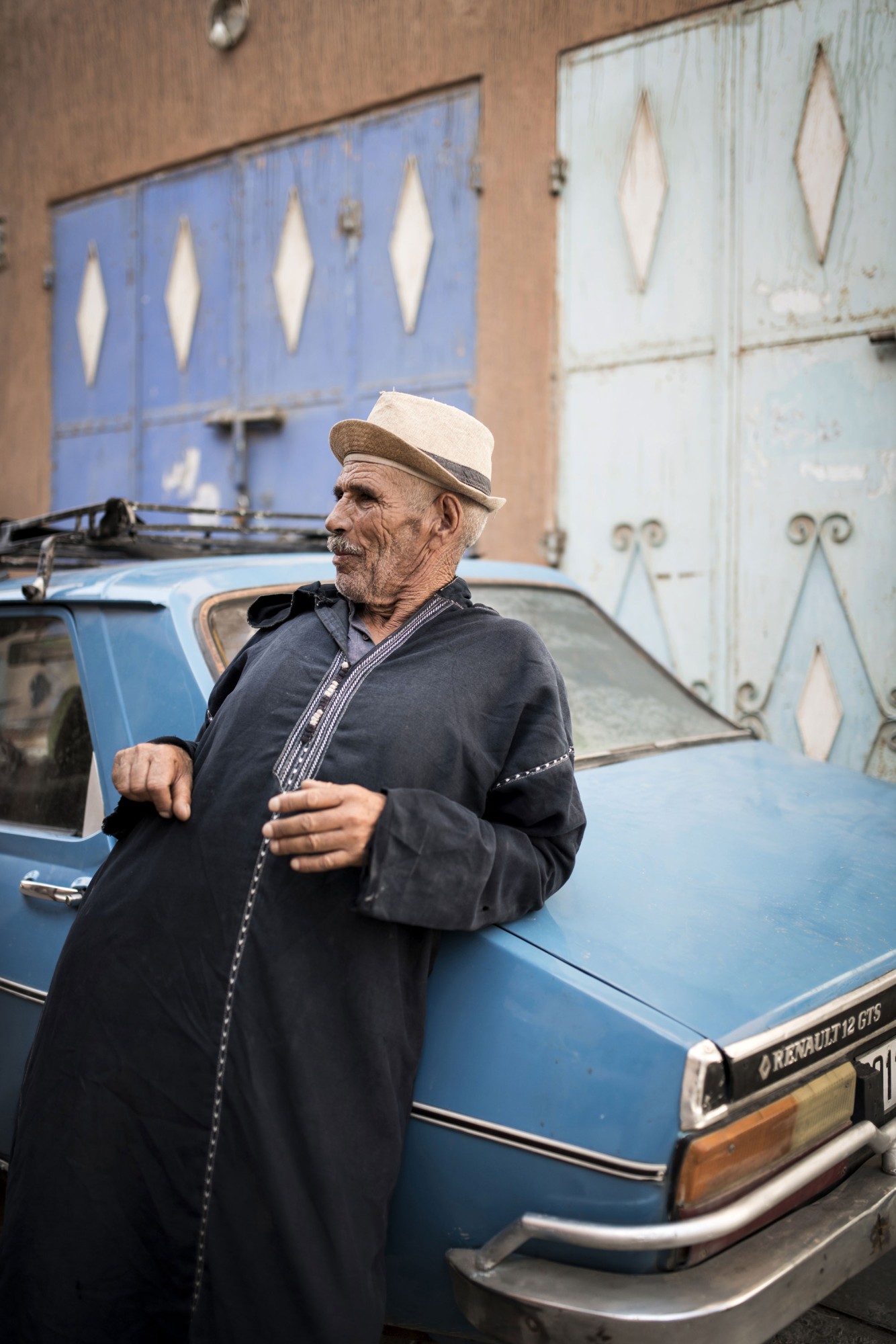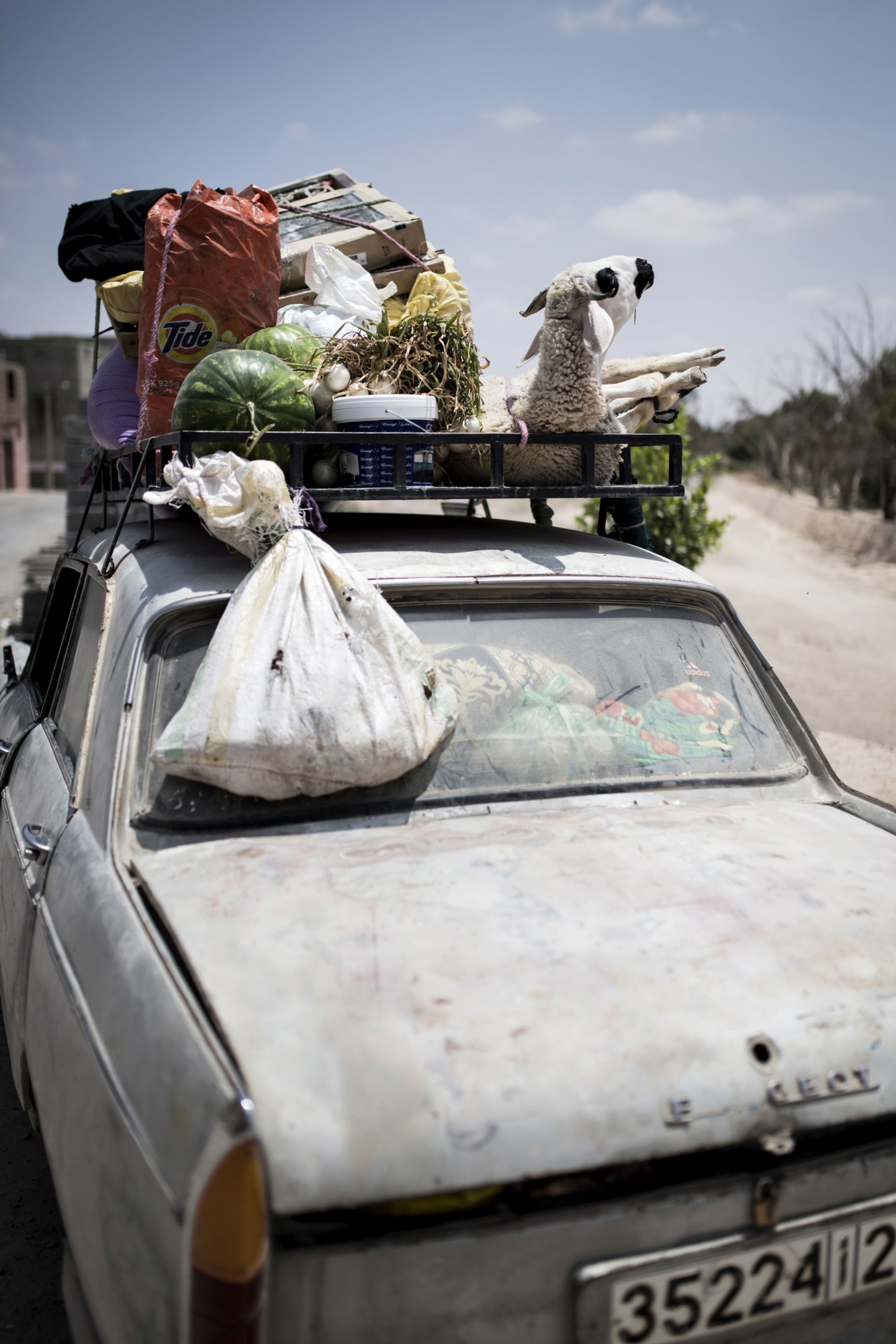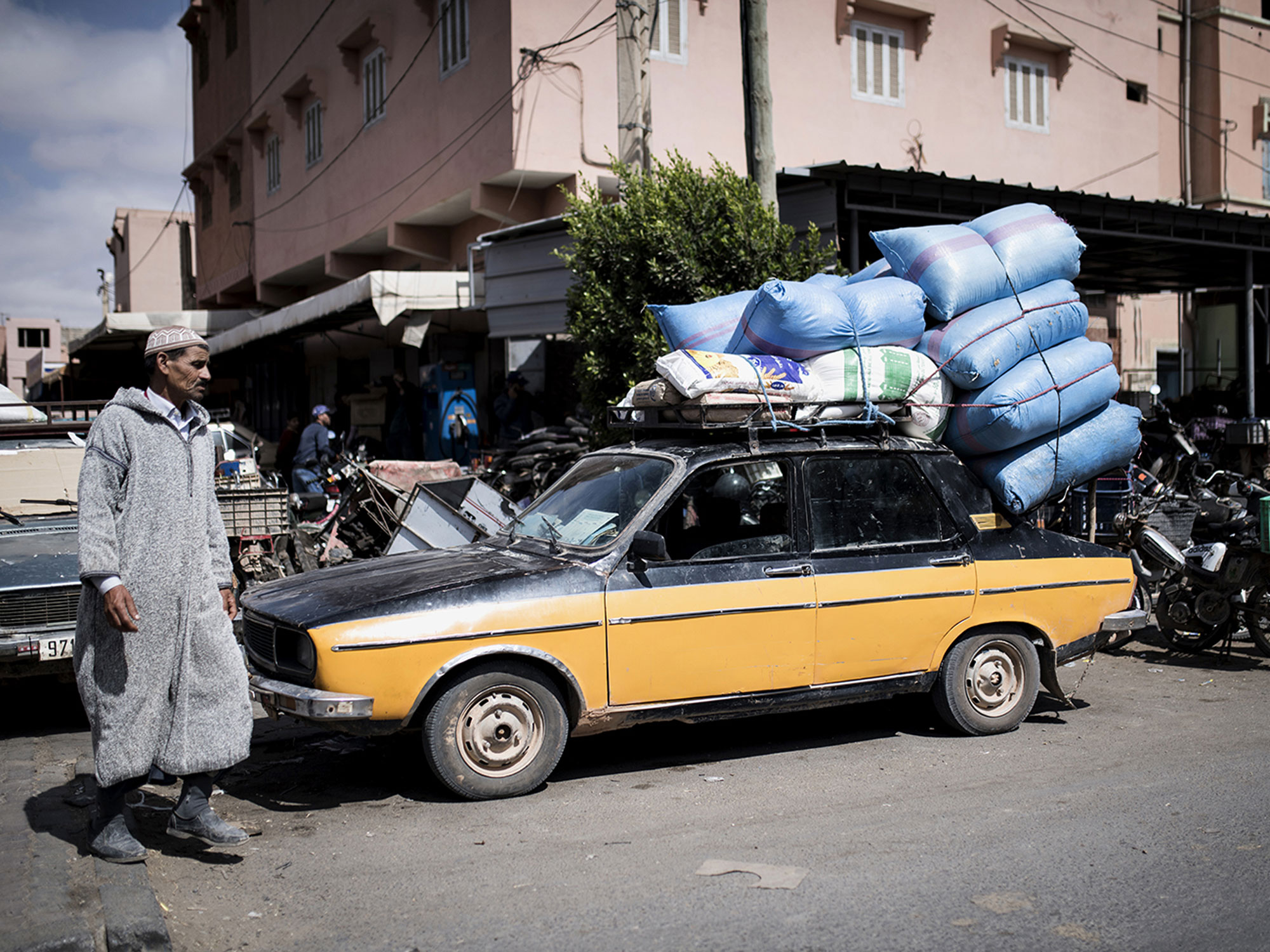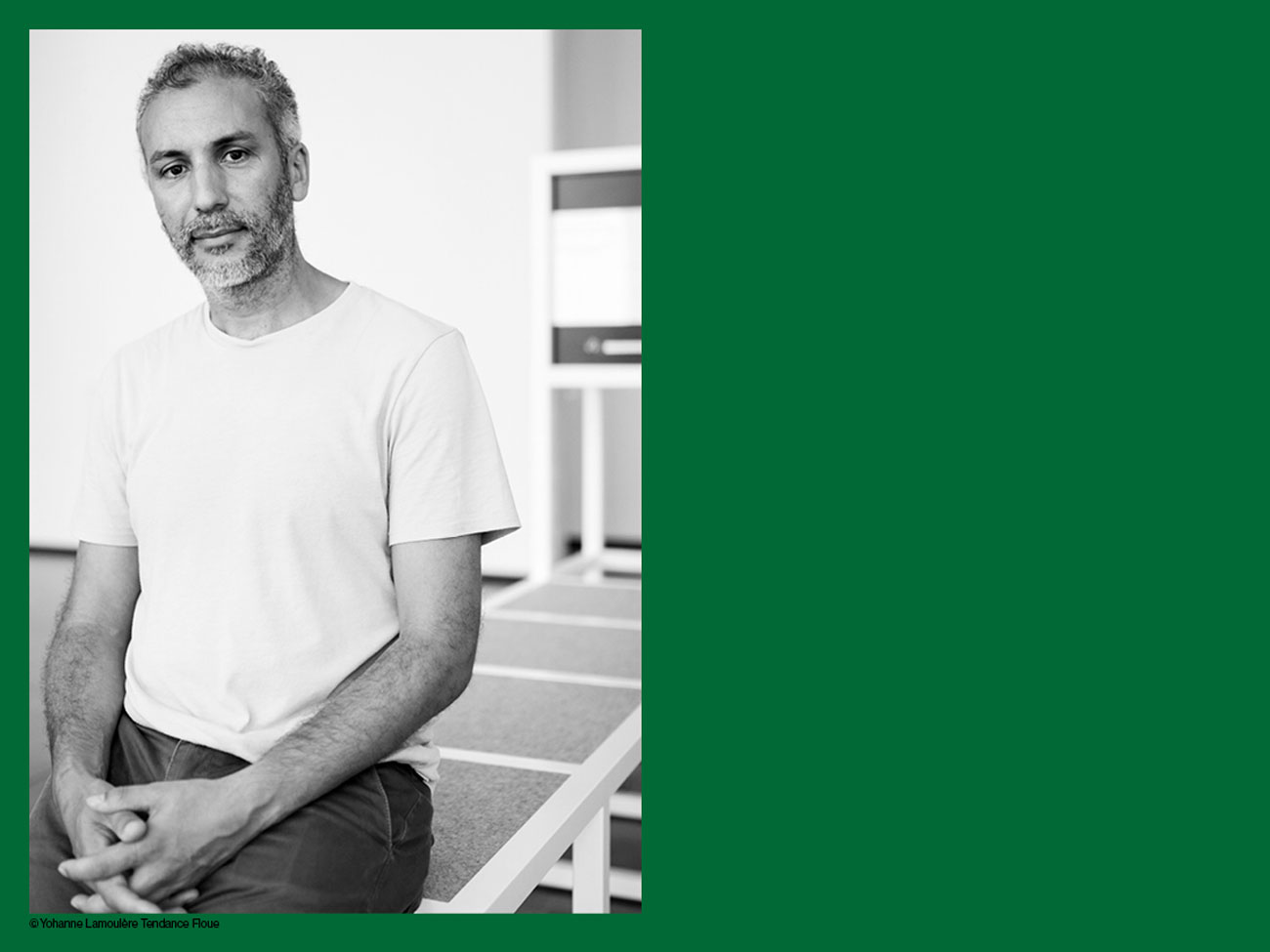

Throughout the year, artist Mohamed El Khatib has brought a personal, lively and human dimension to the Mucem's program, by weaving together fictions at the crossroads of the intimate and the documentary. Taking the form of road-movies, performances or literature, these epics recount, in no particular order, the inner lives of museum guards, the nostalgic homecomings of North African communities in Renault 12 cars, the secret lives of the elderly, among other surprises... In this interview, the artist explains his approach and why he sees this carte blanche entrusted to him by the Mucem as a contribution to the intangible heritage of the Mediterranean.
Sandro Piscopo-Reguieg : You are guest artist at the Mucem for the 2023 season. How do you feel about this year?
Mohamed El Khatib : For me, coming from a theater background, the museum is a space of total freedom. Anything is possible in a museum! There are no boundaries between disciplines or languages, and it's a place where we can freely interpret our history. Museums are places of experimentation, where there's no question of genre or format. There's real freedom in the forms of representation, rhythms and flows. Working in a museum is therefore particularly stimulating.
S. P-R. : What does the Mucem evoke for you, specifically?
M. E-K. : It's an almost naive pleasure, because the Mediterranean is my childhood. I see this carte blanche entrusted to me by the Mucem as a contribution to the intangible heritage of the Mediterranean. For me, working here has a dual scientific and sociological interest, as it's a museum focused on popular arts and traditions; but it's also a museum turned not towards Paris, but towards the future, which lies on the other side of the Mediterranean. Africa is the youth of tomorrow. Faced with our aging West, vitality is now being invented in the South. What should we do with these young people? What way(s) of life can we invent together? From this point of view, the Mediterranean is a formidable laboratory for human, political and aesthetic experimentation.
S. P-R. : What role can a performing artist play in a museum?
M. E-K. : The challenge for a contemporary artist is to bring out new narratives, and to work on telling the story of our heritage, making it "alive" and current. This is the opportunity that live performance offers us: to tell a different story about our heritage, and to think of ways of sharing this story with as many people as possible. At the Mucem, I'm going to try to reformulate traditional museum settings by injecting live art into them, to create experiences that really involve the people of Marseilles. These schemes will involve local residents right from the production stage. And this is true in every medium, because throughout the year, there will be installations, films, performances... In this way, we're reactivating a shared heritage. To produce a certain number of ar-chives and first-hand accounts that can feed into the narrative of the Mucem and that of life on the shores of the Mediterranean.
« For me, working here has a dual scientific and sociological interest, as it's a museum focused on folk arts and traditions; but it's also a museum turned not towards Paris, but towards the future, which lies on the other side of the Mediterranean. »
S. P-R. : One example is your Renault 12 project, based on summer migrations between France and the Maghreb countries...
M. E-K. : I'm thinking of all those people who have frequented the Mediterranean, our parents' generation, who left the Maghreb to come and work in France, and who spent their time going back and forth between their two countries. This generation will disappear. But these people are steeped in history. For years, they have criss-crossed France by car; and their life stories constitute an intangible heritage of the Mediterranean. We're going to seek out these old-timers, interview them, and put their stories together to tell another story of the Mediterranean, through the windshield of a car. It will be a story of journeys, a story of dashed hopes. It's a part of French history that's often overlooked, but it's part of our national heritage. This project is also about redefining what constitutes heritage. I'm thinking, for example, of Marseille and the disappearance of car wrecks... I regard them with a certain tenderness. I think they should be defended in the same way as a collection of art brut! Reviving a junkyard is like reviving a cemetery. And through the history of a car, it's the history of an entire family, of a generation, that can come back to life... This collection we're going to create will have a very strong sentimental value. I'd like to reactivate all this with the Mucem public.
Coming soon: Le grand âge de l'amour, a show with 7 people aged 75 to 102. Concept and direction: Mohamed El Khatib. Set design: Yohanne Lamoulère. Project manager: Camille Nauffray. Information and booking on mucem.org.
Exhibition-Installation Renault 12, in the Hall du J4 and Fort Saint-Jean from Friday September 29, 2023 to Monday November 27, 2023. This installation is a journey to the heart of these stories of migration and all the objects, memories and emotions they carry.

